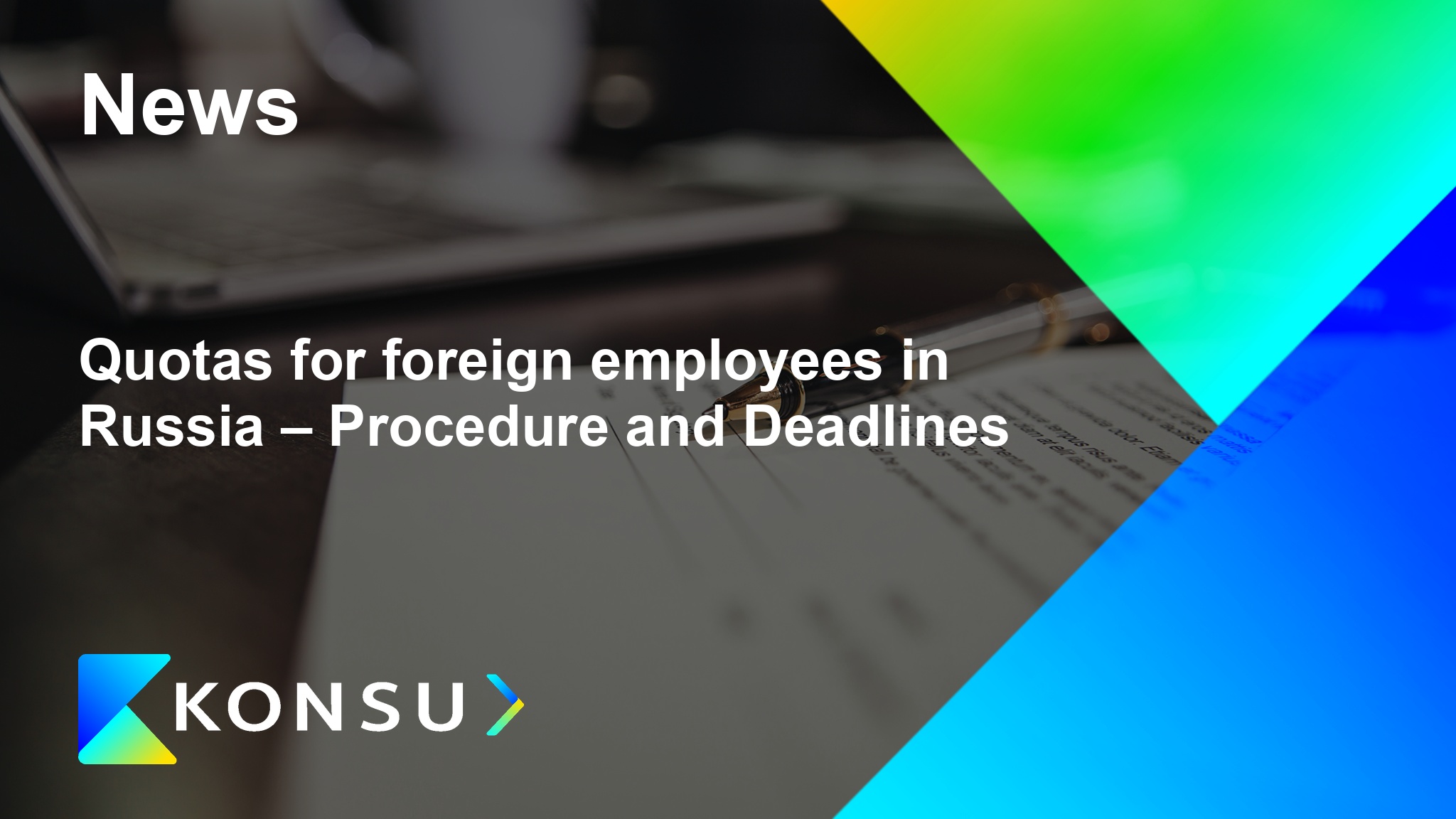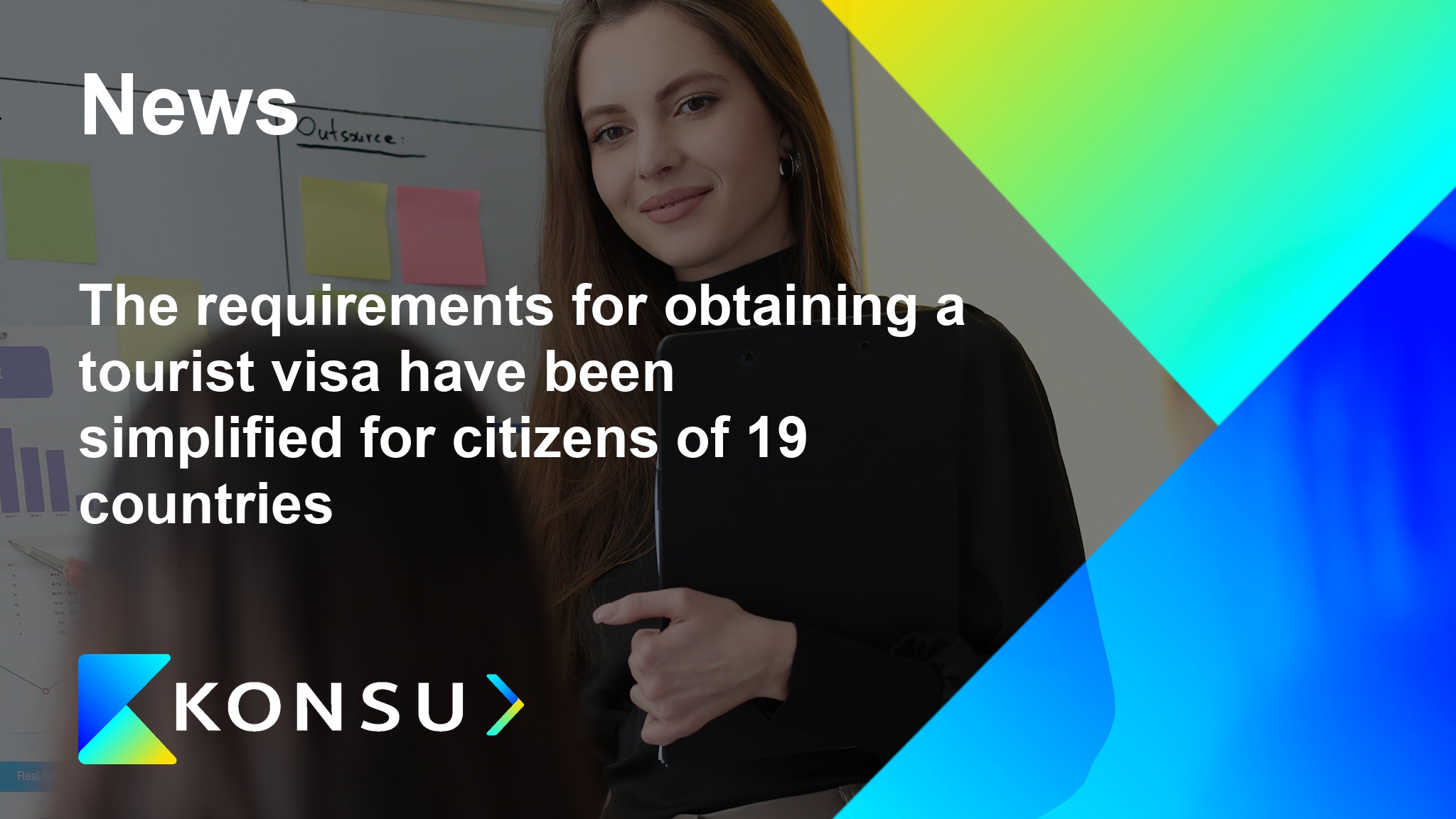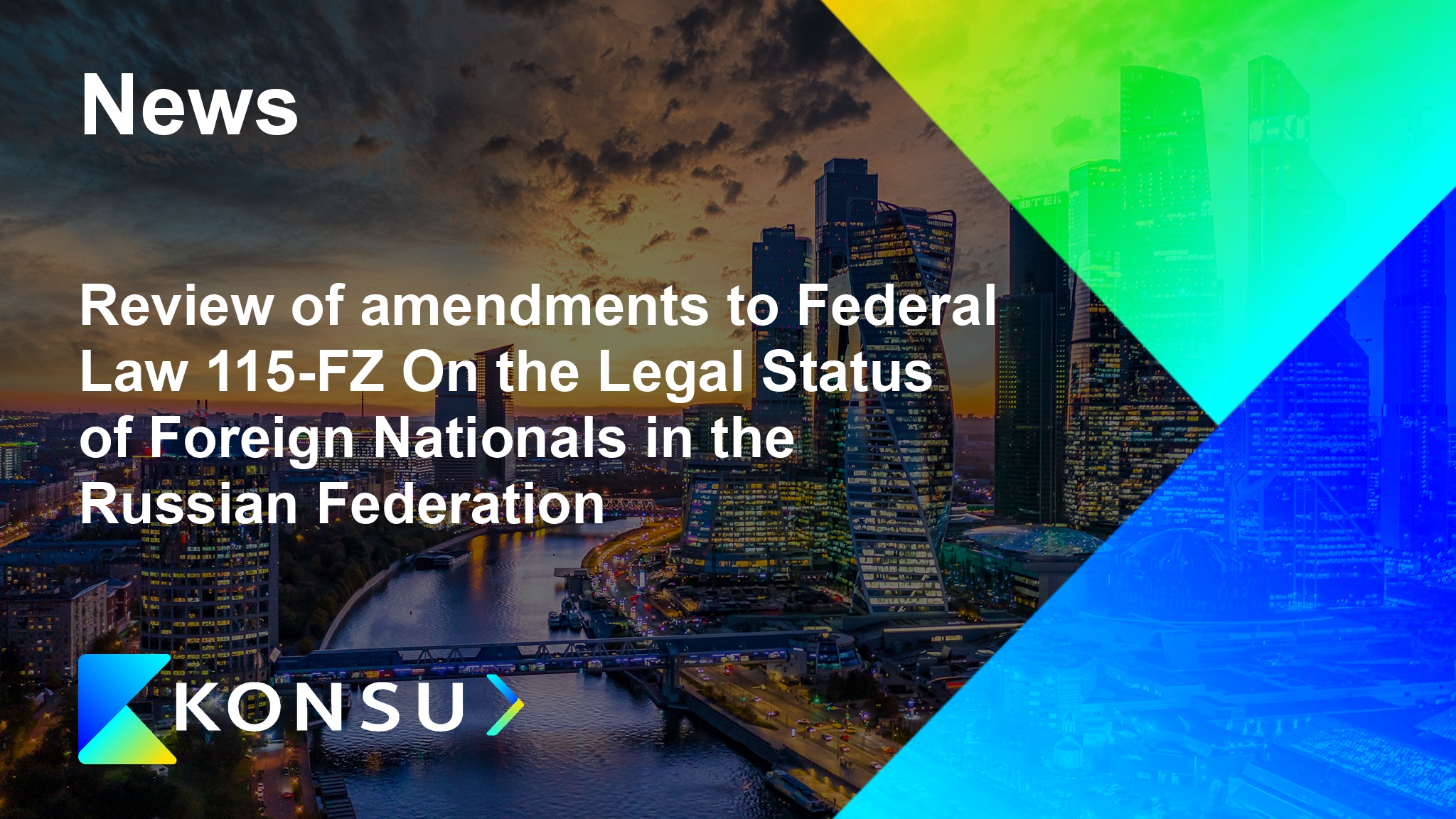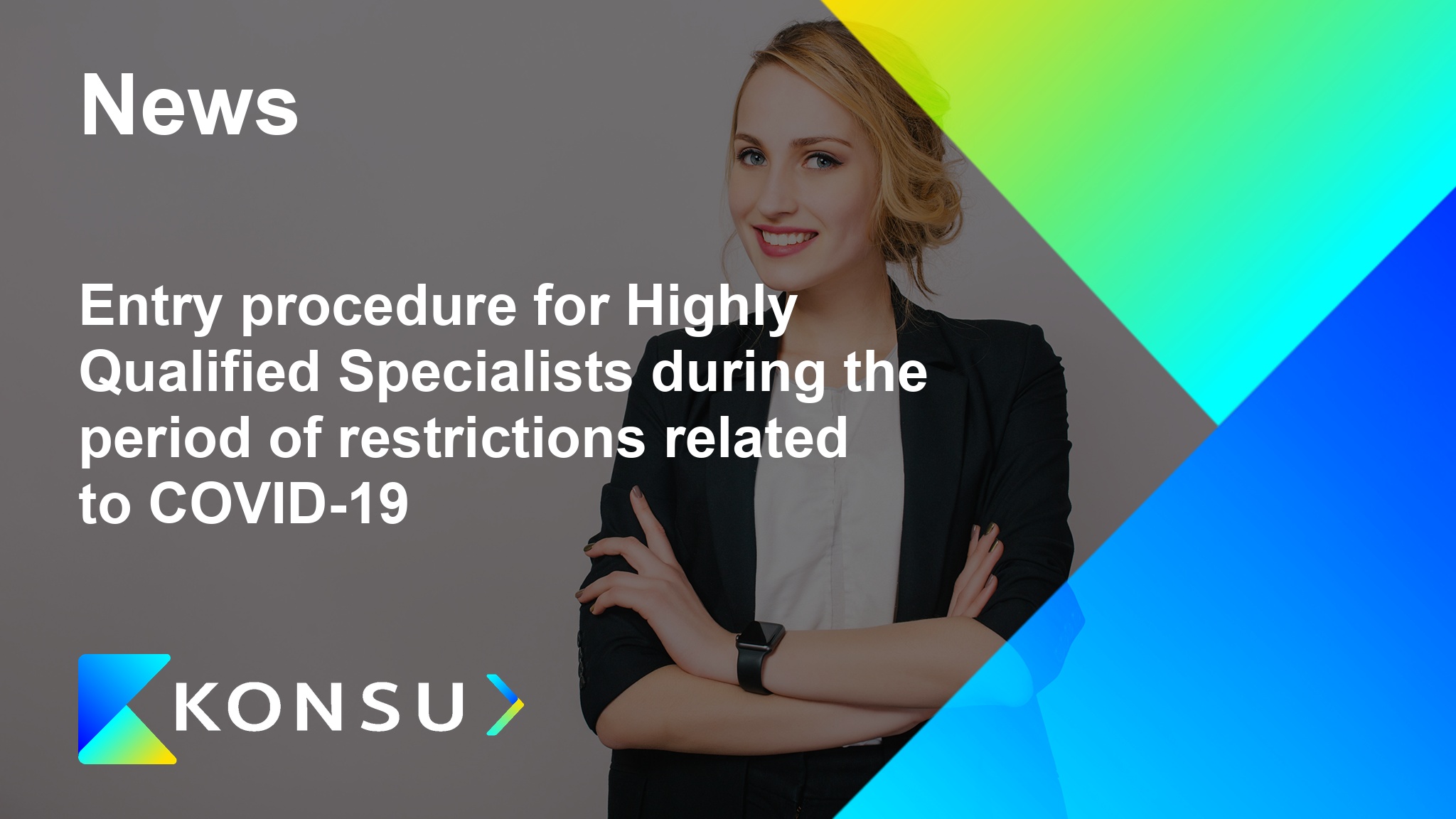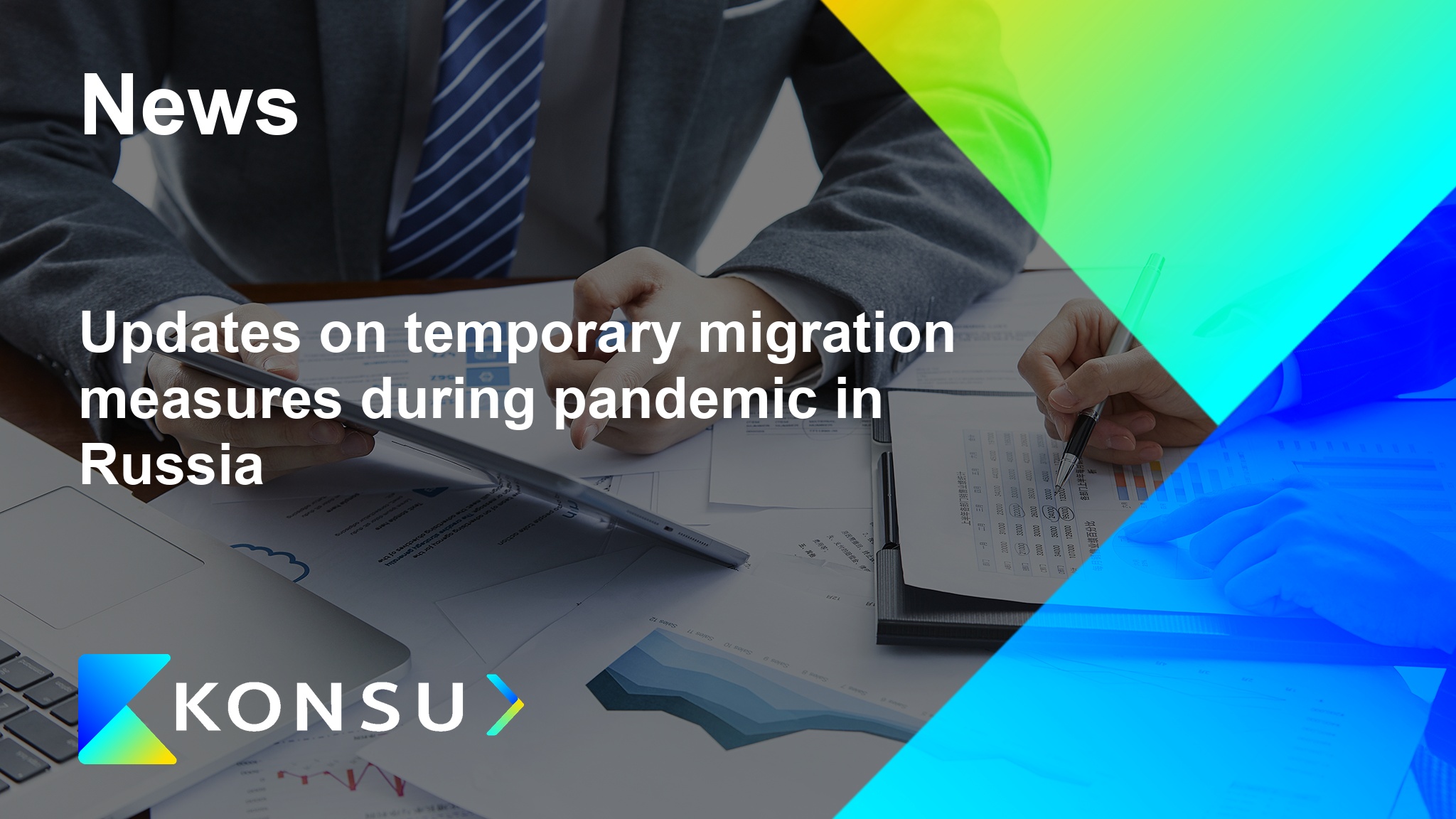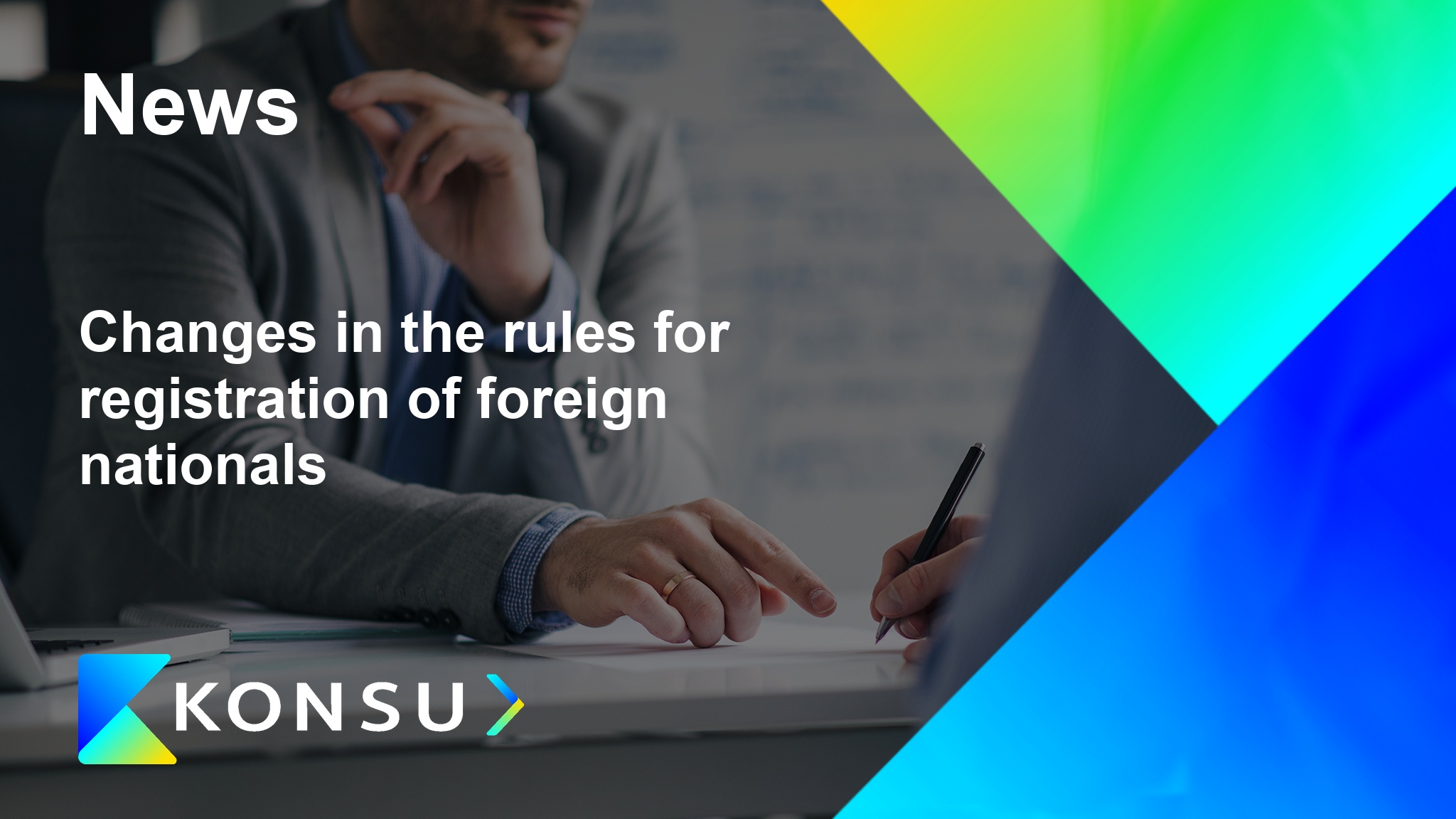Quotas for foreign employees in Russia – Procedure and Deadlines
In order to protect their domestic labor market, many countries – Russia included – set quotas for hiring foreign employees. Companies must therefore obtain an authorization from the state to hire foreign nationals who need a visa to work in Russia.
Read more
The requirements for obtaining a tourist visa have been simplified for citizens of 19 countries
Starting from March 06, 2023, amendments have been made to the law that expand the possibility of obtaining an ordinary tourist visa in Russia for foreign citizens based on confirmation of a reservation in a hotel or other accommodation facility included in the unified list of classified hotels, ski resorts, beaches, for citizens of foreign countries, the list of which is determined by the Government of the Russian Federation.
Read more
Review of amendments to Federal Law 115-FZ On the Legal Status of Foreign Nationals in the Russian Federation
Amendments to Federal Law N 115-FZ On the Legal Status of Foreign Nationals in the Russian Federation have been reviewed.Read more
Entry to the Russian Federation for UEFA EURO-2020
The European Football Championship UEFA EURO 2020 will take place from June 11 to July 11, 2021. Our lawyers explain how foreign championship participants, fans, journalists, and bloggers should register their entry and stay in the Russian Federation, as well as additional COVID-19 requirements.Read more
Entry procedure for Highly Qualified Specialists during the period of restrictions related to COVID-19
Highly Qualified Specialists (HQS) are allowed single (February 6, 2021 Government Decree) entry to the Russian Federation by Government Decree No. 635-r dated June 25, 2020. According to this decree, HQS may come to the Russian Federation if the following conditions are met:
- HQS must be included in the list compiled by the “federal executive body under the jurisdiction of which the employer or customer of HQS operates and sent to the Ministry of Internal Affairs and the Federal Security Service of Russia.
- At the border, HQS must present:
- Identity documents recognized as such in the Russian Federation;
- Visa (when no international agreement on visa-free procedure applies). If the HQS visa has expired, the employer must also apply to the Russian Ministry of Internal Affairs to request an entry invitation for its HQS. It should be noted that the issuance of business visas is currently suspended, and only work visas are issued for HQS, visas for technical specialists, visas for crew members of ships and aircrafts;
- Employment contract (or civil law contract for performance of work/provision of services);
- Optional: A certificate in Russian or in English confirming receipt of a negative COVID-19 test conducted by polymerase chain reaction method, carried out no earlier than 72 hours prior to arrival in the Russian Federation, as well as (if available) medical documents confirming the detection of immunoglobulin G antibodies. If no certificate is provided, then foreign nationals will have to be tested in the Russian Federation at their own expense within three days of their arrival.
- Upon entry to the Russian Federation, to get to their place of residence in Moscow and Moscow Oblast, HQS will have to submit a copy of their lease agreement for their apartment, a copy of the landlord’s ownership title to real estate property (if available), and a copy of the notice of migration registration at the address specified in the certificate until the latest departure from the Russian Federation (if available).
Update December 18, 2020: According to news posted on Rospotrebnadzor website (see screenshot of December 24, 2020 below), highly qualified specialists (HQS) will be able to go home for the New Year festivities and come back to the Russian Federation before January 10, 2020 (possibly a typo and the date was meant to be January 10, 2021 although there is a risk that this may end up being used as a formal reason to decline entry) without additional permits and lists but with a certificate confirming negative COVID-19 test result. New government decrees that may allow HQS to enter the country after the New Year holidays have not yet been published. As a result, the restrictions on the return of HQS to the Russian Federation are formally retained for the time being, including for the New Year holidays. There is a risk that no new decree will be adopted. In such case, the old one will formally apply, and HQS will be able to return to Russia only under the general procedure described in this article (based on the lists from the Ministry of Internal Affairs and the FSB compiled at the request of the relevant authority based on employers’ applications and sent to the state border service). Important: HQS may exercise the right to single entry only once, so it is not possible to re-apply under the same procedure. (February 6, 2021 Government Decree)
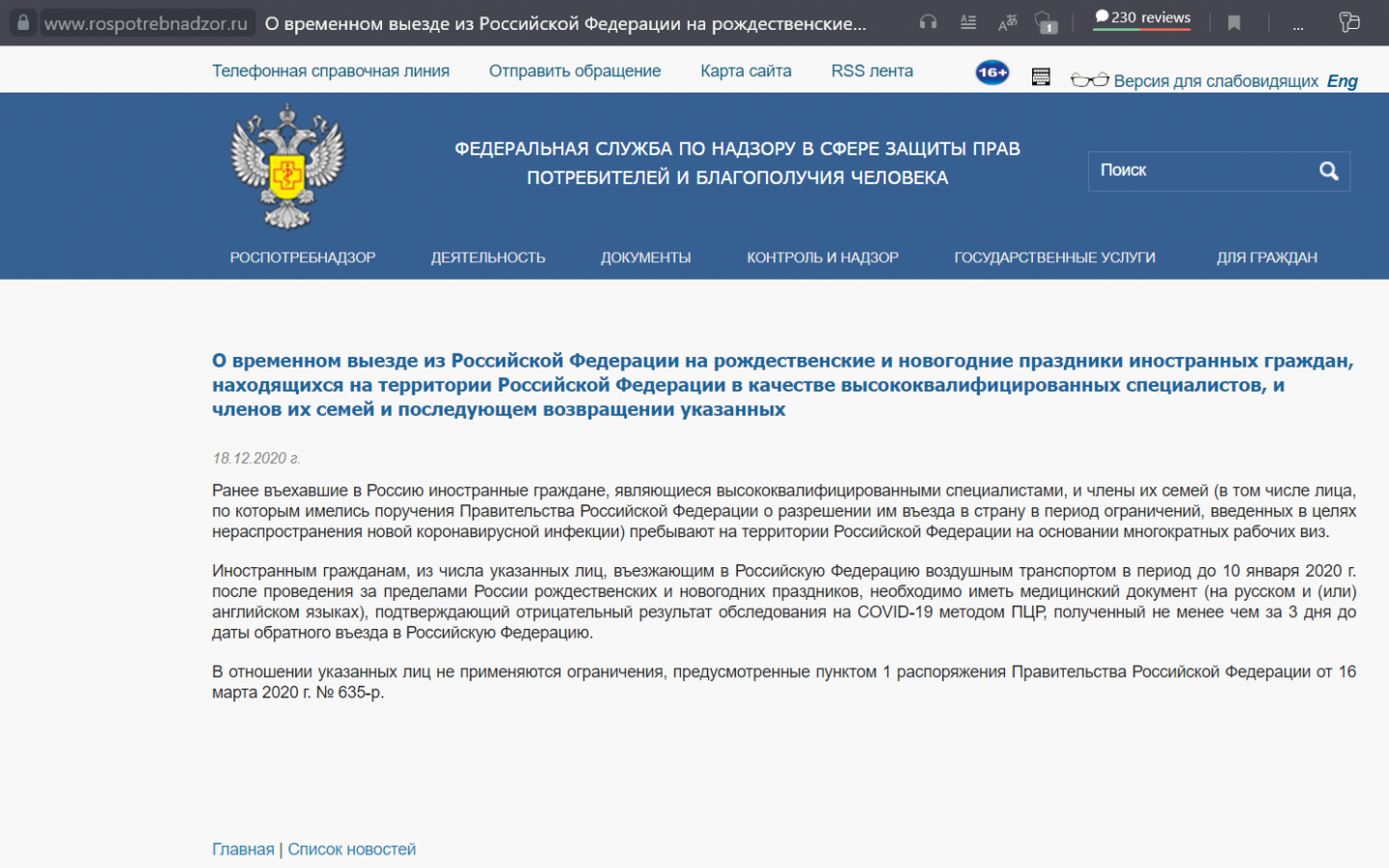
Lists
The lists mentioned in the decree are used by border officers to control the entry of foreign nationals. They contain the following information: Full name, citizenship, date of birth, purpose of trip, state border checkpoint, expected date of arrival, duration of stay, details of host/inviting party (full name, phone number, position).
How to get on the list
Foreign nationals must contact one of the federal executive bodies to be included in the list sent to the Ministry of Internal Affairs and the Federal Security Service of Russia. The federal executive body that should be contacted depends on the type of activity in which the employers of HQS are engaged. The Russian Ministry of Internal Affairs recommend using the List of Federal Executive Bodies and State Corporations Licensing Specific Types of Activities. It should be noted that no all possible types of activities are in this list, so if an activity is not found in the list, it is possible in this case to use the position of the Ministry of Industry and Trade that determines whether a company falls under its jurisdiction based on the company’s OKVED2 code. Update as of January 18, 2021: Federal government officers submit applications to FSB using this service on Gosuslugi.ru.
Timeline
The entry procedure for HQS amid the current pandemic is not regulated, so the timeframe for obtaining an entry permit can only be estimated approximately based on information from all the authorities involved.
For example, if a company falls under the jurisdiction of the Ministry of Industry and Trade, then the process will take approximately 15 days:
- It takes up to 7 working days for the Ministry of Industry and Trade to review applications and send them to the FSB;
- The lists are delivered to the FSB either by courier or postal service within about 3 days. In some cases, delivery may take longer;
- The FSB and the Ministry of Internal Affairs review the lists and send them to the appropriate state border checkpoints within 5 working days as information about entry of HQS must be provided no later than 5 working days prior to expected arrival in the Russian Federation.
The FST uses these lists only to control the entry of foreign nationals and is not required to send any confirmation either to employers or to the federal executive body from which the lists are received. So, HQS can make sure they are on the border control lists only when crossing the border. Employers and foreigners can check status of their applications using this service (in Russian) on Gosuslugi.ru (Update as of January 18, 2021). It is also possible that applications for inclusion in the list could be rejected at any stage, both at the Ministry of Industry and Trade and the FSB. If the entry date indicated earlier changes, it will be necessary to reapply for another entry permit.
Invitations for HQS
Employers must appeal to the Russian Ministry of Internal Affairs to get invitations for HQS. The local branch of the Russian Ministry of Internal Affairs then notifies employers that they can submit the documents necessary to receive invitations to enter the Russian Federation as well as work permits for foreign specialists. Citizens and residents of countries from which entry to the Russian Federation is permitted must also be included in the lists to obtain entry permits for HQS and work invitations. No entry permits for HQS family members are issued currently (December 31, 2020). Follow our updates on temporary migration measures during pandemic in Russia.
December 31, 2020: A new Government decree has been issued, allowing entry to Russia for family members of highly qualified specialists: spouses, children, parents, adoptive parents, adoptive children. The entry procedure for the family members is the same as for the HQS themselves.
November 18, 2020 A new government decree has been issued, allowing entry to Russia for family members of highly qualified specialists engaged in sports as well as for:
- People participating in sports events in the Russian Federation, their family members (spouses, parents, children, adoptive parents, adoptive children) included in a list sent by the Russian ministry of sports to the FSB of Russia, the Russian ministry of internal affairs, and the Federal Air Transport (specifying the Russian border checkpoint and date of entry) provided these persons present valid identity documents recognized as such in the Russian Federation;
- Holders of ordinary work or ordinary humanitarian visas for sports communication or in cases provided by international treaties of the Russian Federation visa-free.
Rospotrebnadzor requirements
The 2-week self-isolation requirement has been canceled for anyone entering the Russian Federation, except for foreign nationals and stateless persons entering the country to work, and a negative coronavirus test does not exempt them from the required 2-week self-isolation (Item 6.1 Chief State Sanitary Doctor Order N 22 dated July 27, 2020). A negative coronavirus test does not exempt from self-isolating. Upon arrival in the Russian Federation, Rospotrebnadzor employees will issue immediately after crossing the border a 14-day self-isolation order at home or in one of the observation facilities provided by Moscow Oblast (they are usually based in hotels just outside Moscow).
How HQS who do not live in Moscow and Moscow Oblast avoid getting into observation facilities. Before entering the country, HQS must agree with the authorities of the host region upon a direct transfer to their place of self-isolation at home. Such transfer will be organized by the authorities of the host region at their own expense. After crossing the border, HQS will have to notify Rospotrebnadzor and Moscow Oblast Ministry of Transport that a transfer has been organized by the regional authorities (because the Ministry of Transport and Rospotrebnadzor usually notify at the border only the total number of transfers to the regions without indicating specific passengers).
Update as of October 19, 2021 New clarifications from Rospotrebnadzor about 14-day self-isolation for foreign employees
Entry for treatment
HQS may also enter the Russian Federation for treatment. This will require the cancelation of the current visa (if any) and the issuance of another visa based on an invitation for treatment issued through the Ministry of Internal Affairs. Invitations for treatment must be received from a Russian medical organization, and it will be necessary to leave Russia once the visa for treatment expires. The law also allows entry to look after close relatives in need of care.
Related articles
- 18.03.2020 Cancelation of employment contract with foreign employee (highly qualified specialist). Risks for employers
- 14.01.2021 New notification forms for foreign employees and highly qualified specialists
Law on electronic visa to the Russian Federation adopted by the State Duma
The law on electronic visa for foreigners was adopted by the State Duma on July 21. The bill was introduced by the Russian Government as instructed by the President on June 1 (RIA). Before becoming effective, the law must be approved by the Federation Council and signed by the President. We will monitor all changes as the new law progresses and will report them in this article. Let’s see how electronic visas will work if the law is passed as it is now.
Read more
Updates on temporary migration measures during pandemic in Russia
Following the closure of borders and quarantine measures under Presidential Decree No. 274 dated April 18, 2020 introducing temporary measures to regulate the legal status of foreign nationals and stateless persons in the Russian Federation due to the threat of the further spread of coronavirus (COVID-19), the Ministry of Internal Affairs has taken measures to regulate the legal status of foreign nationals residing in Russia.
Job positions without quotas in 2019 in Russia
To protect their domestic labor market, many countries, including Russia, set quotas for employers who wish to hire foreign nationals. Companies need to obtain permission from the state and submit an application to hire foreign nationals from a country with which Russia has a visa regime in place.
Changes in the rules for registration of foreign nationals
Brief description of changes and recommendations
Essentially, the following changes have been introduced:
- Previously, companies could register their foreign employees at their own registered address. From July 08, 2018 onwards foreign employees will need to be registered at their address of residence.
- Since many landlords will be unwilling to register their foreign tenants, we recommend issuing a power of attorney for the person who will register foreign employees on behalf of their landlord.
